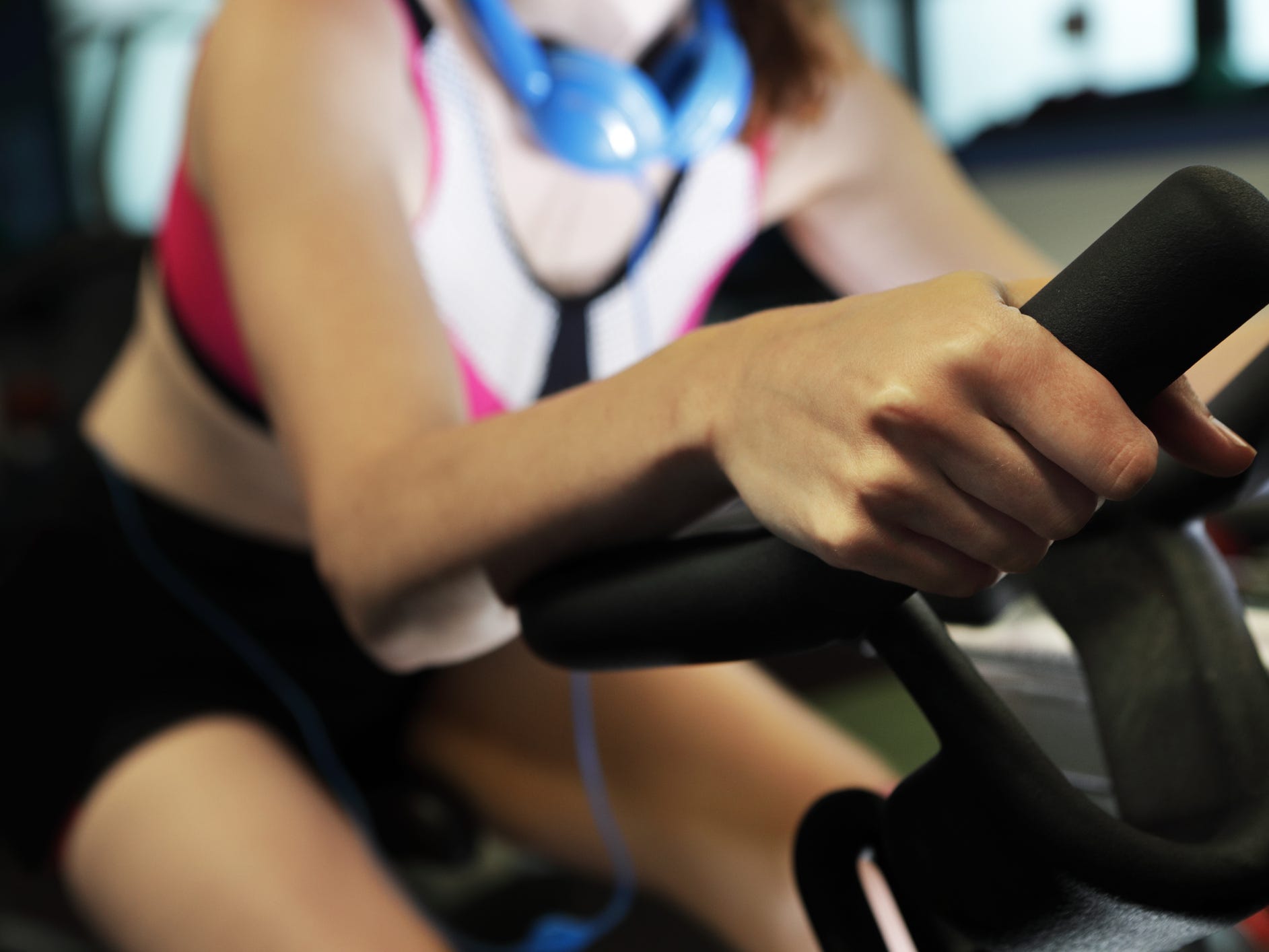
- At least 47 confirmed coronavirus cases have been linked to a single spin studio in Ontario, according to local news.
- The first case linked to SpinCo fitness studio in downtown Hamilton dates back to September, with one asymptomatic person. It spread to employees, studio clients, and household members.
- Health officials report that as many as 100 people could have been directly exposed, despite precautionary measures like reduced class sizes, six feet of space between bikes, sanitization, and screenings.
- Visit Insider’s homepage for more stories.
One Canadian spin studio has been identified as the common thread between at least 47 cases of COVID-19, the disease caused by the coronavirus, according to local newspaper the Hamilton Spectator.
Local public health authorities declared the outbreak last Monday, October 5, when three cases of COVID-19 were first reported at SpinCo, a downtown studio in Hamilton, Ontario, according to Hamilton Spectator reporter Katie McCullough.
Just over a week later, 36 spin class attendees and two staff members have tested positive for coronavirus, along with nine other people who did not attend the studio but were infected by family or household members who did.
Health officials have said that as many as 100 people could have been directly exposed to the virus at the studio, according to the Spectator. That estimate doesn’t include secondary exposures, such as family members or friends of infected studio goers.
The outbreak is believed to have started on September 28, and spread through multiple spin classes until it was identified on October 5, according to a statement on the SpinCo Hamilton Instagram page.
The statement notes that the studio shuttered as soon as coronavirus cases were detected, those involved have been notified and contacted with regular updates, and all other required public health procedures have been followed. The studio will remain closed until it is safe to re-open, according to the post.
"We are at a point where either we let this pandemic own us, or we take ownership back," the statement reads. "We are determined to switch the script!"
The person believed to have caused the outbreak had no symptoms, according to the local newspaper The Star, and the infection spread despite preventative measures such as studio sanitization, limited class sizes, and a six foot radius of space between bikes.
According to the SpinCo website, masks are required while entering, exiting, or moving around the studio, but may be taken off during the workout.
A socially-distanced indoor spin class may be futile if you don't have masks
There is evidence that it is possible to reopen a gym without spreading infection. For instance, a pre-print study in Norway found that 1,892 people were safely able to return to gyms in Oslo for two weeks without getting sick. They did not wear masks, although they did wash their hands regularly and follow social distancing precautions. A caveat: Norway's capital has had significantly fewer cases of COVID-19 than some areas.
We know that working out indoors is significantly riskier than outside, especially if you're not wearing a mask. The CDC has noted that the virus may be able to travel more than six feet in indoor spaces, particularly if they are poorly-ventilated, which calls into question the benefit of six-foot-apart spin bikes.
There's also substantial evidence that people can be highly contagious even before showing symptoms, or without ever getting sick themselves.
Wearing a mask during your workout, and even putting up barriers between workout stations, could help to mitigate the risk.
Upgrading ventilation systems can help
A major factor in the safety of indoor workouts is airflow, according to research.
Heavy breathing during a spin class or other fitness activity may disperse infectious viral particles throughout the space. Certain types of ventilation systems that recirculate air, instead of bringing in fresh air, can exacerbate this, evidence suggests.
Many gyms have addressed this by installing new air systems that filter or disinfect air contaminants and/or bring in fresh air from outside. In some areas, such as New York, it's a requirement to do so before reopening.
Read more:
Boutique fitness as we know it is dead. But a new kind of premium 'me-time' is taking its place
